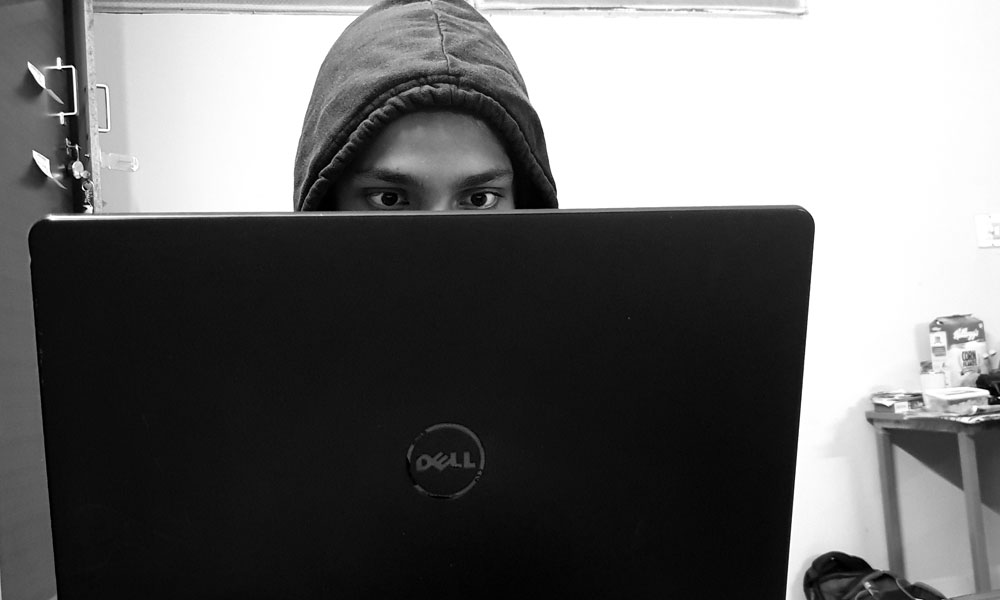According to a survey conducted by the National Centre of Missing and Exploited Children (NCMEC), a United States based commission, around 2.4 million children online sexual abuse cases were reported in India last year, out of which 80 percent of them were girls under the age of 14.
Justice Girish Chandra Gupta said that in June 2016, a girl in Tamil Nadu saw a picture of her face with a body of a different woman online. This was done by a man whom she had rejected, and the girl’s father immediately filed a complaint against him. A few days later, her distorted image was uploaded online again, with her father’s phone number written on it. The girl could not take it and ended her life.
Additional Commissioner of East Zone Seemant Kumar Singh said that “they should see a larger perspective, that the parents and elders are responsible for the children and should teach them what is right and what is wrong, and explain the level of exposure they should have or not have on social media.”
He added, “The cyber crime police station and IT experts with this police station are tracking social networking sites that have a detrimental influence on the children. The dangerous games that were life-threatening to children were taken action on. If parents find something like that, they need to take the children for counseling. If they cannot get the counselor they should at least bring it to the police so that they could try to find the people who are trying to divert the attention of children.”
David Ruggeiro, Director of Investigations and Law enforcement Development said, in 2017, a man started chatting online with a woman named Sharon, who was a mother of a two-year-old boy and a five-year-old girl. After a few weeks, it was found that the man had no intentions of having any kind of relationship with the woman but rather wanted to get sexually intimate with her children.
Gupta criticized the striking down of article 66 A of Information Technology (IT) act in 2015 by the Supreme Court, saying, ”Section 66 A was introduced to stop hate speech online, but it was unfortunately struck down as it was going against freedom of speech, so an alternative law should be implemented to prevent the occurrence of online harassment.”
He added that sexual exploitation of children on the Internet is increasing rapidly all around the world, including India, leading to child pornography and trafficking.
Blaire Burns, Chief program officer of International Justice Mission (IJM)raised the issue of impunity leading to the increase of online sexual exploitation, and said, “There is a huge market of online traffickers who make a lot of money because there is impunity; they are not scared of the law and do not get prosecuted. There are laws all over the world but they do not get enforced all the time. It is worse when you have a law and still do not put it on use; it is equal to not having a law.”
According to the Protection of Children from Sexual Offences Act (POCSO), the sexual offenses against children cases does not specifically cover the issue of all types of online sexual abuse, the online sexual abuse part has been covered in the IT act, so to deal specifically with online sexual abuse of children, both the POCSO and IT act need to be merged along with section 370 of Indian Penal Code – but the problem is that very few are aware of this,” said Dr. P.M Nair, retired Indian Police Service officer and chairperson of Tata Institute of Social Sciences.
“It is time to accept the bitter truth that the scope of investigating a crime in the dark web is limited. When 96 percent of the Internet is dark web, the rest 4 percent is the normal Internet which consists of Google, Facebook, Twitter, etc.,” said Rizwan Shaikh, a cybercrime expert.
“WhatsApp has a good encryption policy; therefore, tracking the content circulating of child pornography on WhatsApp is difficult, all you can do is take a screenshot or get the phone numbers,” said Mr. Shaikh.
Astewayee Yigzaw, the former officer of Washington D.C. police and current criminal analyst of IJM advised parents by saying, “Always disable location services on your child’s mobile phones, as tagging in photographs and check-in posts help the traffickers to track the children.”
“Try keeping the computer system in a common room of the house, but not in the child’s bedroom. Installation of parental control, filtering tools, and family key logger tools are also necessary,” said Krishna Sastry Pendyala, Executive Director of PricewaterhouseCoopers, India.
He further said, “Teaching cyber ethics should be made mandatory in school curriculums.”





